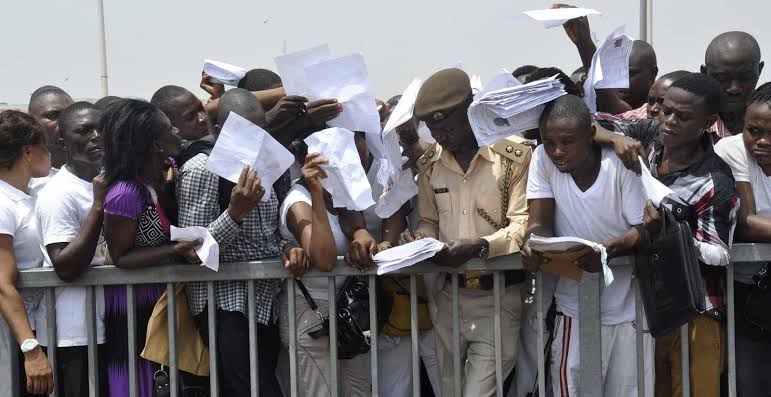
Nigeria’s unemployment rate has decreased to 4.3 percent in the second quarter of 2024, according to a report by the National Bureau of Statistics (NBS).
The new rate represents a significant drop from the 5.3 percent recorded in the first quarter of 2024.
The NBS report, released on Monday, defines the unemployment rate as the share of the labour force, comprising both employed and unemployed individuals, who are actively searching for work and are available to start immediately.
The Labour Force Participation Rate rose to 79.5 percent, up from 77.3 percent in the previous quarter, indicating increased workforce engagement.
The Employment-to-Population Ratio also showed notable improvement, climbing to 76.1 percent in Q2 2024 from 73.2 percent in Q1 2024. This suggests that a higher proportion of the working-age population was gainfully employed during the period.
Self-employment remained the dominant form of employment, accounting for 85.6 percent of total employment, an increase from 84 percent in the preceding quarter. Informal employment also rose slightly to 93.0 percent, highlighting the economy’s reliance on informal jobs.
Urban unemployment rates decreased to 5.2 percent, a reduction from 6.0 percent in Q1 2024. Rural areas recorded an even lower unemployment rate of 2.8 percent, compared to 4.3 percent in the previous quarter.
The youth unemployment rate (ages 15-24) dropped significantly to 6.5 percent, compared to 8.4 percent in Q1 2024. However, the report revealed persistent gender disparities, with the unemployment rate for females at 5.1 percent, compared to 3.4 percent for males.
